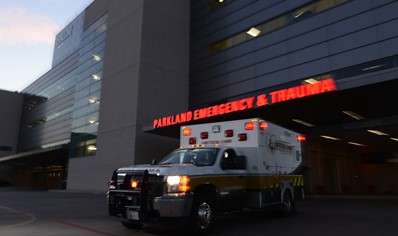
Should I Go to the Emergency Room or to My Doctor?
October 21, 2021
Accidents, injuries and illnesses are a part of life—for you and your children.
Most cuts, scratches, bumps and bruises are minor. You can recover at home, without seeing a doctor.
But what if the cut is deep? What if the pain doesn’t go away?
Should you call your primary care doctor, or should you call 911 and go straight to the emergency room?
North Texas Pediatrician Dr. Mariel Silva is here to help.
In the short videos below, Dr. Silva gives easy step-by-step instructions on how to make this important decision when you or a loved one is sick or injured.
Is the condition life-threatening? Go to the ER.
Call 911 or go to the emergency room if you or your loved one:
- are having trouble breathing
- have chest pain that lasts more than a couple of minutes
- cannot walk
- are struggling to speak
- are having seizures
- have swelling of the lips or tongue
- have a large burns or several burns
- have pain in your lower right abdomen
- are poisoned
- are pregnant and have severe abdominal pain or vaginal bleeding
- are under three months old and have a fever
Hear Dr. Silva explain these serious injuries and illnesses:
Use the emergency room for severe pain or wounds.
Do you feel pain in several parts of your body?
Did you take over-the-counter medication, but it doesn’t help control the pain?
Do you have a cut in your skin or wound that won’t stop bleeding?
Dr. Silva says these are signs that you should go to the emergency room.
Use the emergency room if you—or your baby—are having trouble breathing.
Some people have medication to help them breathe. If you take your breathing medication but you are still having trouble, don’t wait! Get medical help right away.
Babies less than six months old who are struggling to breathe also need immediate help.
Visit your primary care physician (PCP) for minor injuries and sickness.
Instead of the emergency room, visit your doctor or your child’s pediatrician for:
- earache
- sore throat
- cough
- rashes
- and other symptoms that are not life-threatening.
Hear a few more examples:
For high-quality care for minor health problems, do not use the emergency department.
You might think that the emergency room will give you the fastest and best care, even for minor illness or injuries.
That is not always true.
Your primary care physician knows your entire medical history. That means your doctor can give you the best care for your specific needs.
Listen as Dr. Silva explains:
To prevent emergencies—see your primary care doctor for ongoing care.
Do you see your primary care physician (PCP) for checkups, vaccines and other routine care?
If so, you are more likely to catch problems early, before they lead to emergencies.
Dr. Silva explains:
If your doctor’s office is closed, call the 24-hour nurse line.
It’s late at night and you can’t stop coughing. Or it’s the weekend and your baby has a fever.
The doctor’s office is closed—but you can still get help for non-emergency symptoms.
Dr. Silva explains a few options:
Our 24-hour Nurse Line gives you fast, free medical advice. English/Spanish interpreter services available 24 hours a day, 7 days a week. For emergencies, call 9-1-1.
- STAR Medicaid: 1-888-667-7890
- CHIP/CHIP Perinate: 1-800-357-3162
- TTY 7-1-1



